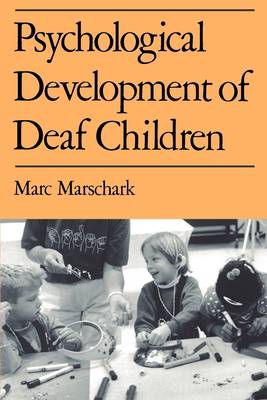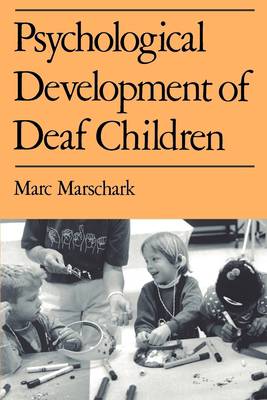
- Afhalen na 1 uur in een winkel met voorraad
- Gratis thuislevering in België vanaf € 30
- Ruim aanbod met 7 miljoen producten
- Afhalen na 1 uur in een winkel met voorraad
- Gratis thuislevering in België vanaf € 30
- Ruim aanbod met 7 miljoen producten
Zoeken
Omschrijving
This book is the first comprehensive examination of the psychological development of deaf children. Because the majority of young deaf children (especially those with non-signing parents) are reared in language-impoverished environments, their social and cognitive development may differ markedly from hearing children. The author here details those potential differences, giving special attention to how the psychological development of deaf children is affected by their interpersonal communication with parents, peers, and teachers. This careful and balanced consideration of existing evidence and research provides a new psychological perspective on deaf children and deafness while debunking a number of popular notions about the hearing impaired. In light of recent findings concerning manual communication, parent-child interactions, and intellectual and academic assessments of hearing-impaired children, the author has forged an integrated understanding of social, language, and cognitive development as they are affected by childhood deafness. Empirical evaluations of deaf children's intellectual and academic abilities are stressed throughout. The Psychological Development of Deaf Children will be of great interest to students, teachers, and researchers studying deafness and how it relates to speech and hearing; developmental, social, and cognitive psychology; social work; and medicine.
Specificaties
Betrokkenen
- Auteur(s):
- Uitgeverij:
Inhoud
- Aantal bladzijden:
- 288
- Taal:
- Engels
Eigenschappen
- Productcode (EAN):
- 9780195115758
- Verschijningsdatum:
- 20/03/1997
- Uitvoering:
- Paperback
- Formaat:
- Trade paperback (VS)
- Afmetingen:
- 157 mm x 233 mm
- Gewicht:
- 408 g

Alleen bij Standaard Boekhandel
+ 149 punten op je klantenkaart van Standaard Boekhandel
Beoordelingen
We publiceren alleen reviews die voldoen aan de voorwaarden voor reviews. Bekijk onze voorwaarden voor reviews.











